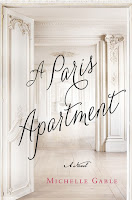I received this book for free from Netgalley. That did not influence this review.
So who doesn’t want to buy a centuries-old mansion on a picturesque hilltop in the south of France, fix it up, befriend your neighbors, and spend years soaking up the culture and history of the region? Also, eat the food and drink the wine? T.D. Allman, an award-winning American foreign correspondent, did just that. And then, when he realized he was now the most senior resident in Lauzerte, he wrote a memoir-like history of the town, the region, his house, and his place in it.
In France Profound: The Long History of a House, a Mountain Town, and a People is an engrossing history of France Profonde, the southern part of France geographically distant from the capital, culturally distinct, and yet never quite able to escape Paris’ influence.
The timeline proceeds mostly chronologically from the Middle Ages to the present. Allman gives emphasis to history-changing people and events–those that are important to the story he’s telling. He centers the tale on what was formerly known as the province of Quercy, but is now the department of Lot and part of the department of Tarn-et-Garonne. It’s fascinating to see the history of France unfolding from the perspective of this off-the-beaten-track part of the country. Most interesting to me were the chapters on Count Raymond VI and Count Raymond VII of Toulouse and the Albigensian Crusade. Allman’s agnostic view of the various religious wars makes a case for their pointlessness. But the long history of the region’s involvement in all the successive wars showed the importance of the area in all major European conflicts.The author uses his 800-year-old house as a metaphor for the timelessness and the changes of the area. Initially, the town was isolated and known for its beautiful medieval appearance. Allman points out that the medieval touches were recent, which is disillusioning. But the geography and culture of the region were more resistant to change and to fashion. I think I was as sorrowful as he was to watch the life of the town move down the mountain (in order to provide for more convenient car parks) and suffer the influx of chain stores and fast food places.
Looking up the author when I finished the book, I was sad to see he died in May. This book was published posthumously. But what an incredibly full life he led!
For fans of memoir, French history, and France in general, this book is recommended. It’s a bit lengthy and I found some of the digressions slow-going, but overall, it’s a beautiful book.

































